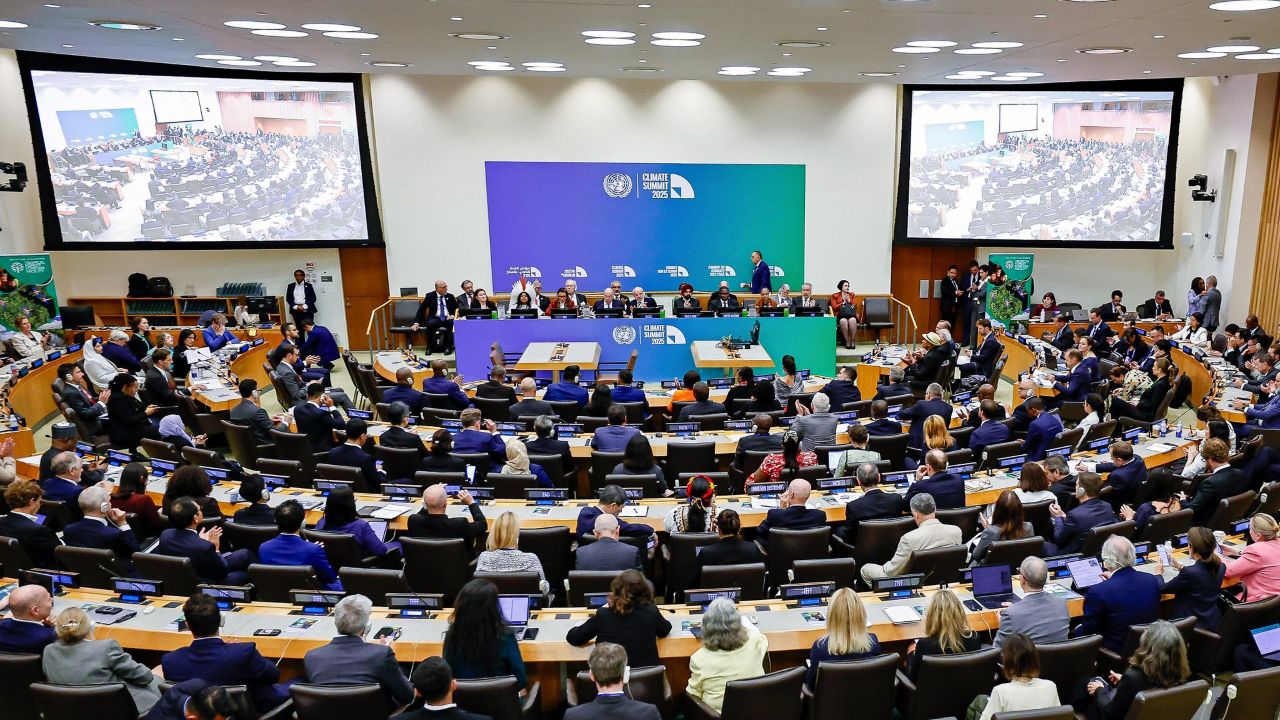Lula Announces $1 Billion Contribution to the Tropical Forests Forever Fund: “Brazil Will Lead by Example”
The initiative was the focus of a meeting in New York on Tuesday (September 23). The multilateral financing mechanism proposed by Brazil will be formally launched at COP30

President Luiz Inácio Lula da Silva announced during the Opening Session of the Meeting on the Tropical Forests Forever Fund (TFFF) on Tuesday, September 23, that Brazil will contribute $1 billion to the initiative. The Fund, which introduces an innovative financing model for the conservation of tropical forests, will be officially launched at the 30th United Nations Climate Change Conference (COP30), scheduled for November in Belém, Pará.
“Brazil will lead by example and become the first country to commit one billion dollars to the Fund. I therefore invite all partners present to make equally ambitious contributions so that the TFFF can begin operations at COP30 this November in the South American Amazon,” Lula declared at the meeting, held at United Nations Headquarters in New York.
The Brazilian initiative seeks to strengthen the preservation of standing forests, demonstrating that protecting them holds greater value than cutting them down. In total, more than 70 developing countries with tropical forests may qualify for funding. “More than protecting a specific biome, the TFFF is a mechanism to preserve life itself on Earth. Tropical forests provide essential ecosystem services for climate regulation,” the president said.
Lula emphasized that the dividends generated by the TFFF, designed to complement mechanisms that provide payment for reducing greenhouse gas emissions, will be distributed annually between investors and countries that keep their forests standing. “Each year, satellite monitoring will make it possible to determine whether countries are meeting the target of keeping deforestation below 0.5 percent,” he stated.
According to Lula, the goal is for each country to receive up to four dollars per hectare of preserved forest. “It may seem modest, but we are talking about 1.1 billion hectares of tropical forests spread across 73 developing countries,” he noted.
INDIGENOUS PEOPLES AND COMMUNITIES — To join the TFFF, countries must have transparent financial management systems and commit to allocating 20 percent of the resources specifically to Indigenous peoples and traditional communities. “Directing part of these resources to Indigenous peoples and local communities ensures proper support for those who have always cared for our forests and woodlands,” Lula said.
“The TFFF will combine conservation, the sustainable use of ecosystem resources, and social justice in support of a new development model,” he concluded.
ORIGIN — Brazil has been leading efforts to establish the TFFF since COP28, held in Dubai in 2023.
So far, five other tropical forest countries have joined the initiative: Colombia, Ghana, the Democratic Republic of the Congo, Indonesia, and Malaysia. In addition, five potential investor nations—Germany, the United Arab Emirates, France, Norway, and the United Kingdom—are participating in the process of building the mechanism.
RESOURCES — Investor countries are expected to provide an initial contribution of up to $25 billion. With this capital, the Fund is projected to leverage an additional $100 billion in senior capital from the private sector in the coming years. By assuming the role of junior capital, governments agree to take on slightly more risk than private investors, thereby encouraging private participation.
Projections from those developing the TFFF also indicate that the mechanism could generate $4 billion annually for environmental conservation—nearly three times the amount currently invested worldwide in tropical forest protection through concessional funding.
OPERATIONS — Countries with tropical forests that join the TFFF must submit annual reports to the Fund’s council demonstrating forest conservation, verified through satellite monitoring. Brazil already conducts such monitoring through the National Institute for Space Research (INPE), which, according to the Ministry of the Environment and Climate Change (MMA), could serve as a model for other nations.
Beneficiary countries will have the autonomy to determine how the funds are allocated. In Brazil, the Ministry of the Environment and Climate Change projects that the resources could reinforce a range of conservation measures, including the Green Grant Program (Programa Bolsa Verde), the National Policy for Payment for Environmental Services, and initiatives to advance the bioeconomy.
GREEN ECONOMY — As for the fund’s investments used to compensate countries, projects involving fossil fuels are prohibited. Priority will be given to stocks and bonds issued by governments and companies in emerging economies, as well as to products considered green.
Translation: Michel Emmanuel Félix François (POET/UFC)
Proofreading: Tadeu Azevedo (POET/UFC)
